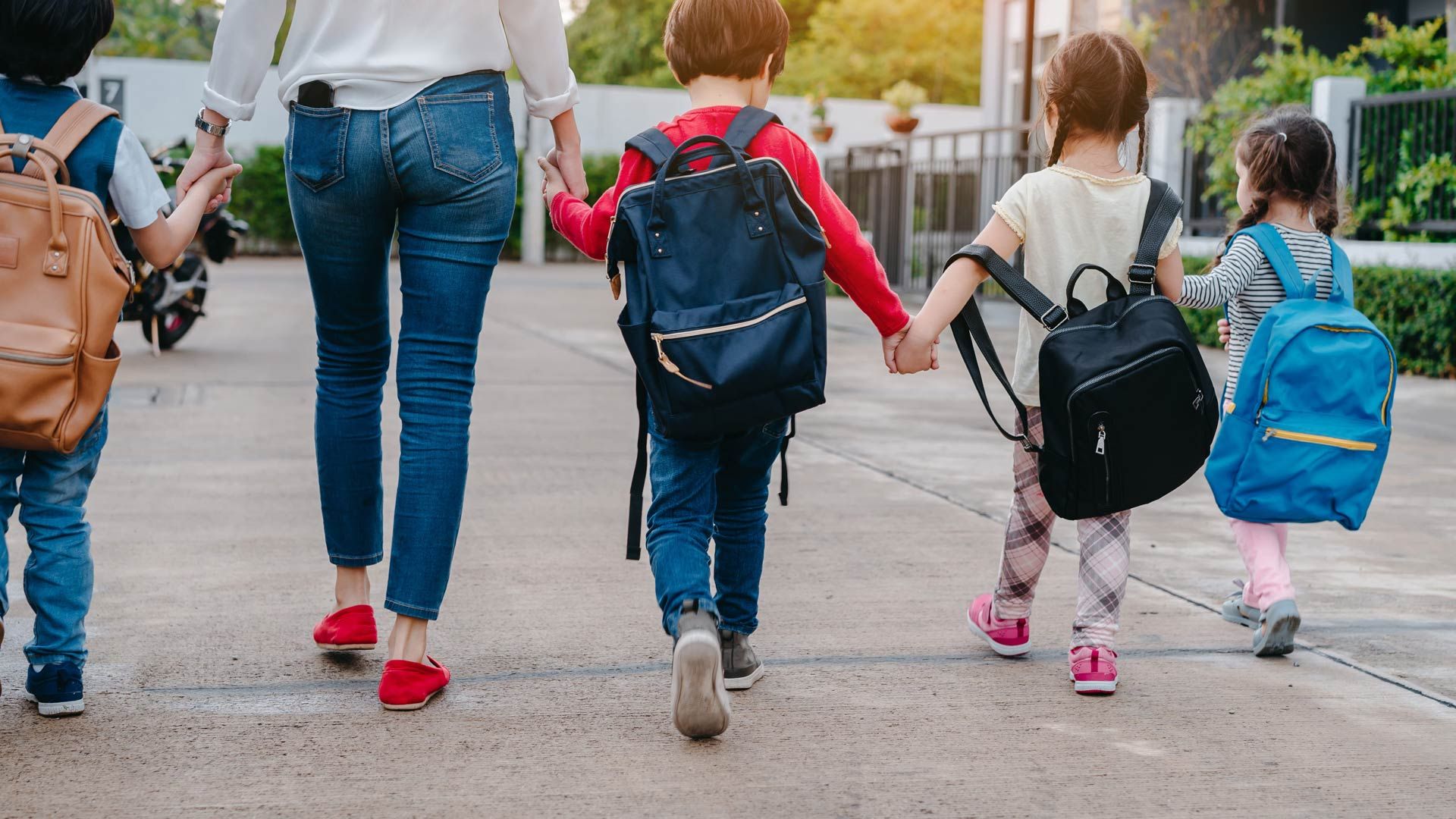Helping Your Child Navigate Change – Advice for Back to School Anxiety From Our School-Based Clinicians

Remember how you felt when you started that new job? When did you move to a new city for the first time? No matter how big the change, it can be a challenge for many of us.
We sat down with our School-Based Clinicians to learn how parents can set the stage for a healthy, successful school year. We asked – what advice do you have for parents, whose children face back-to-school anxiety, that can be useful throughout the year?
1. “My advice for school anxiety is first off to normalize that response. The first days ARE anxiety-provoking. I’m sure many parents can relate to feeling nervous when they were in school or even on their first days on a job. Reminding kids that they are not alone in what they are feeling, even if everyone else looks calm and collected. Coach them through strategies to calm their bodies (deep breathing, positive visualizations, etc) and remind them that they are strong enough to feel those feelings and still go to school. The more frequently they go, the better chances they have to get used to the routine, and their teacher’s personalities, and build relationships with friends so they can feel less uncertain about their days. If the anxiety persists, reaching out to the school for support can be a big help.” – Jennifer, LCSW, School-Based Clinician
2. “Give them a special something that they can carry in their backpack. It can be anything from a picture, a special stuffed animal, or something that represents a special memory.
Sending notes in a lunch box can be a nice reminder during the middle of the day. Rather than the note saying “I miss you!” perhaps consider something to get the child’s mind thinking about something positive from the school day. For example “What is something that made you smile today?” or “I can’t wait to hear about something new you learned!”
If the separation during drop-off is difficult, I highly recommend creating a routine and sticking to it. Ideally, this routine does not require the parent to even get out of the car. Maybe you play a fun, upbeat song as you pull up, give a quick hug and kiss, and pass the child off to another adult at school. While it’s hard and heartbreaking for the parent/guardian to leave when their kiddo is upset or anxious, sticking around actually makes the anxiety worse. Can your child have a classroom job to do as soon as he or she arrives to reduce the downtime?” – Lindsey, MA, NCC, LPCC, School-Based Clinician
3. “I think it is important to validate the child and their feelings. Starting a new year can bring up overwhelming feelings for many children and adults. Validating that it can be hard and it’s an adjustment can help the child adjust and feel ready for the new year. Throughout the year, different assignments or activities can lead to similar feelings of anxiety. Validate and maybe share a time that you felt the same way and what you did to overcome.” – Caitlin, LSW, School-Based Clinician
4. “My advice is for parents to develop and maintain a clear, consistent routine at home to decrease anxiety about transitions. A healthy, consistent routine at home would include time for play, time for homework, dinner, and a nighttime routine of hygiene-focused tasks (bath, shower, brush teeth, brush hair, etc.) to support a bedtime that allows for at least 8 hours of sleep.” – Tanya, LCSW, School Based Clinician
5. “I’d let parents know that some level of anxiety regarding going back to school is normal and that most students experience some of this their first few days back. Letting your child know this is normal is important, as well as letting them know that you’re there for support. Talk with your child about the worry they’re experiencing with going back to school, and listen to their concerns without judgment.
If your child continues to struggle with the anxiety past the first week or two of school, then it might be time to start getting involved with school staff to see what kind of support they can offer to help your child with school anxiety. And of course, if the anxiety becomes significant enough to start interfering with their attendance, their functioning during school, or their relationships with friends and family, it might be a good idea to seek extra support through Jefferson Center to assess if therapy would be helpful. Many schools in the Jeffco district have school-based clinicians right on-site that can provide ongoing support. Ask your child’s school guidance counselor or principal if there’s a Jefferson Center School-Based Clinician at their school. Services can also be accessed through one of Jefferson Center’s outpatient offices by calling 303-425-0300.” – Whitney, LCSW, School-Based Clinician
- Kiara’s Note – Blog
- Mental Health Matters – Blog
- Voices of Hope – Blog
- Humans of Jefferson Center
- Addiction & Substance Use
- Anxiety
- Child Mental Health
- Crisis and Trauma
- Depression
- Exercise
- Just The Facts
- LGBTQIA+ & Pride
- Medicaid
- Men’s Mental Health
- Parenting
- Recovery
- Senior and Older Adult
- Socializing
- Stigma
- Stress
- Suicide Prevention
- Support & Advocacy
- Teen’s Mental Health
- Treatment Options
- Women’s Mental Health